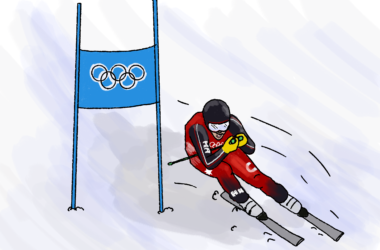 Sam Reynolds / McGill Tribune
Sam Reynolds / McGill TribuneAs hosts of the 2011 CIS women’s soccer championship, the Martlets clinched a spot in the championship bracket well before the first kickoff of the season. However, that didn’t prevent the Martlets from exceeding expectations in their quarter-final matchup by defeating second-ranked Trinity Western 1-0 on penalty kicks. McGill bowed out in their semifinal against top-ranked rival Université de Montréal, losing by a 2-1 margin after extra time. Finally, they succumbed to the Ottawa Gee-Gees in the bronze medal match. The Martlets failed to score a regulation goal during the entire tournament.
The quarterfinal match featured a cautious defensive battle between both teams, a strategy that ended up favouring the defence-oriented Martlets. Most of the game was played in the centre of the field, with both teams alternating offensive pressure throughout the 120 minutes played. The Martlets came out strong from the onset with two great scoring chances by captain Alexandra Morin-Boucher in the first 10 minutes, but appeared to lose steam as the half progressed. Fortunately for McGill, goalkeeper Victoria Muccilli was sharp and came up with huge saves throughout.
As the clock hit the 90th minute, and then the 120th minute, signalling the end of overtime and the beginning of the penalty kicks, the score remained tied at 0 largely due to the efforts of both goalies. The Martlets faced a huge challenge going into the penalty kick round, as Trinity Western had yet to lose a PK shootout all season. But, thanks to hours of carefully studied video of Trinity’s team, the Martlets scored on every shot, while Muccilli stopped two to assure their spot in the semi-finals. “They worked hard, and they fought hard as a team,” Head Coach Marc Mounicot said, beaming. “We had a great first half which gave us confidence as a team, then after that [the team] worked and worked and in the end, they deserved it.”
Mounicot was far from beaming following the Martlets’ lacklustre performance against the Université de Montréal Carabins in the semi-finals, though. Despite going up 1-0 on an own-goal by Montreal in the first 10 minutes, Montreal took control of the play after the half-time interval, leading to the tying goal scored in the 80th minute. Then, the Carabins completed the comeback in the 18th minute of overtime with a great top corner goal off a free kick. Despite McGill finally waking up and applying strong offensive pressure in the last 12 minutes of the extra frame, Carabins goalkeeper Justine Martin shut the door on the Martlets, sending Montreal to battle against Queen’s University for the CIS championship title.
“We stopped playing after 45 minutes and we paid the price against a very good team who is very solid, very good,” Mounicot said, disappointed. “I don’t know if it’s the fatigue or if they couldn’t hold the pressure of the game, but it’s really frustrating, because like I say: ‘lose the game, but play!'” Referring specifically to his team’s lack of execution after the first half, Mounicot added, “We missed too many chances in the first half and then stopped playing hard in the second half. We have a young team and had that problem a lot during the regular season.”
The same problem affected the Martlets on Sunday, when they were matched against the University of Ottawa Gee-Gees for the bronze medal. Despite falling behind 1-0 in the first seven minutes of play, the Martlets fought valiantly in the first 45 minutes, but Ottawa’s defenders effectively shut down any possible shooting. Ottawa would then put the icing on the cake, going up 2-0 in the 41st minute. McGill continued to be stymied defensibely in the second half. After playing extra time the night before, fatigue likely caught up to the Martlets on Sunday as they couldn’t find their legs and grew slower as the bronze medal match went on. Despite their impotent offence, the Martlets should be pleased with their surprising fourth place finish.
Despite the difficulty the McGill squad experienced in their last two matches, The Martlets remains optimistic about their team’s chances next season.
Assuredly, the young squad has now acquired invaluable experience going into next season, where they expect nothing less than to bring the CIS championship to Quebec for the first time in the CIS tournament’s 25-year history.








